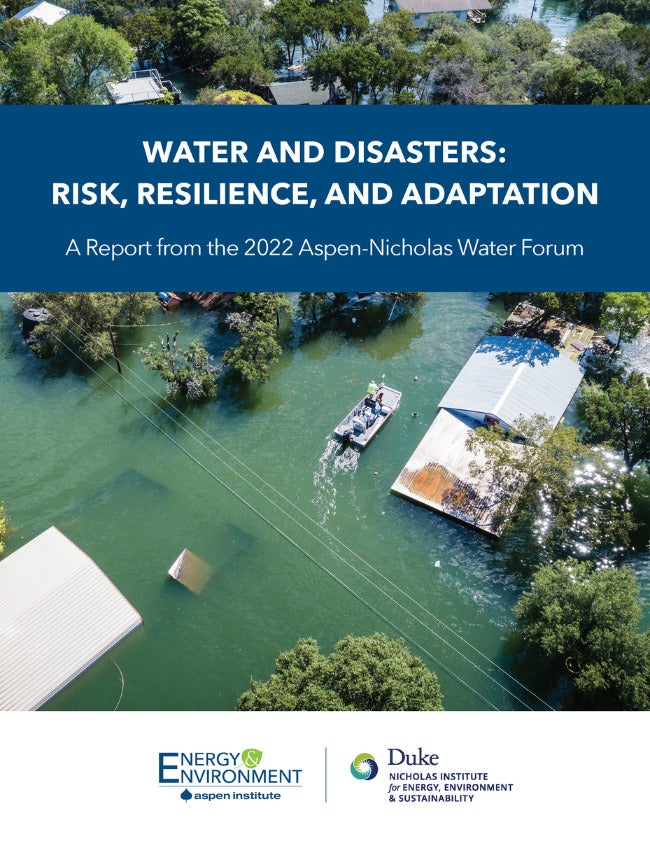Disasters, both natural and anthropogenic, have shaped water management and policy in the United States over the last 100 years. Federal, state, and local water-related policies, practices and infrastructure have often been designed and implemented in the wake of disasters. The response and recovery to disasters has consumed substantial spending at all levels of government, the private sector and individuals. In some areas, frequent flooding is outpacing the ability for communities to respond, while in other areas the wildfire season has expanded to create a “fire year” instead of a “fire season”. As more individuals are exposed to hazards, how we respond to and recover from disasters has a significant impact on the well-being of the community.
The 2022 Aspen-Nicholas Water Forum explored what must be done to ensure the water sector becomes more resilient to water-related disasters and how communities can navigate and prepare for the impacts of increasingly common water-related disasters. How do we reconcile different values as individuals, businesses and government negotiate who receives resources to mitigate, adapt, and recover?
The annual Aspen-Nicholas Water Forum convenes thought leaders to address ongoing challenges to water sustainability in the United States. Participants come from the private sector, government, academia, and non-governmental organizations—representing expertise in industry, finance, philanthropy, government, academia, agriculture, food and organizations technology companies, investors and entrepreneurs. Topics discussed include big data, innovative financing, water quality, and water affordability. The common thread linking each forum is the fundamental question of what does good water governance look like for the United States?
Each year, the Nicholas Institute and Aspen Institute coauthor a summary of the forum. Not all views were unanimous nor was unanimity and consensus sought. Forum participants and sponsors are not responsible for this summary’s content.


